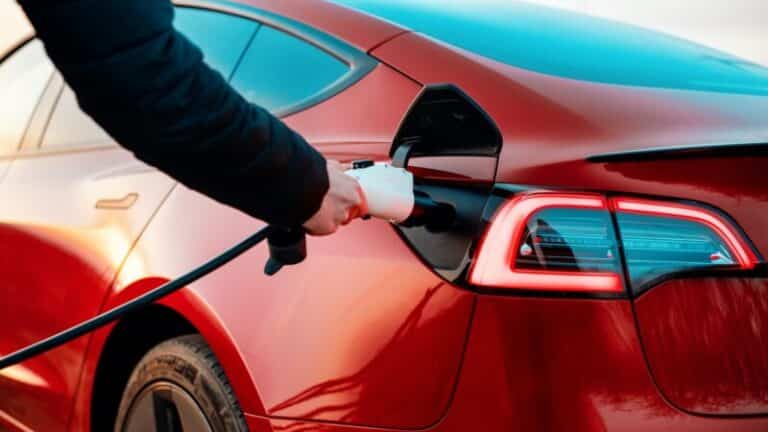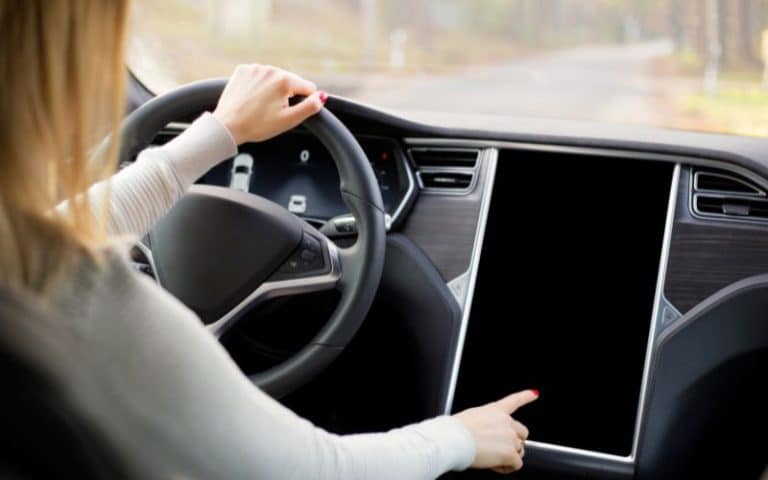Tesla Registration Fee California: The Hidden Costs!
You must have heard that the registration fee for electric vehicles differs from that for gasoline cars.
California law demands that electric vehicle owners pay a sum so they can legally drive on their roads.
This fee gives you legality and helps raise road repair and development funds. The article below aims to tell you all you need to know about Tesla registration fees.
The Tesla registration fee is $100, although the cost varies among Tesla models. There is a yearly charge of $175. Owners pay these charges because of the law approved in 2017. The law allows California to request charges from electric vehicle owners. The more costly your Tesla is, the more charges you must pay.
The article will reveal how much California residents pay for driving Tesla cars. You’ll also know how much owners pay for late registration.
Reading on, you’ll understand why electronic vehicle registration is expensive in California and why owners must register.
How Much Does Tesla Registration Cost in California?

In California, Tesla registration costs between $100 and $175.
Tesla usually finalizes registration, leaving the Department of Motor Vehicles (DMV) to send your registration card and title.
You must register your vehicle to be a legally mandated driver in California. Registration is for residents and non-residents.
The process associates the lawful owner and their car with the motorway. The registration period for fresh residents is 20 days, and they can pay California (DMV) charges.
All late registration draws a penalty, which is a fine that adds to the regular registration fees.
Registration Eligibility
The car’s legal driver is the one who can register it.
Registration is possible if you bought the vehicle from a private marketer or, in the case of a dealership, they will handle registration.
If you buy the car directly from Tesla, they will handle the registration. Once you purchase a car, you’ll receive a provisional registration card.
This card is useful for the time being till you get the permanent card and sticker.
If you purchase a secondhand vehicle, the dealership has 30 days from the purchase date to post the registration request.
However, if the car is new, there is a 20-day period for the dealership to post the registration request. The dealership will also take care of any penalties.
Furthermore, if the vehicle was a private purchase, you have only ten days from the purchase date to apply for registration. Ensure you have the vehicle’s owner’s manual and documents.
You’ll also have to clear any taxes to complete the registration.
Besides buying a new vehicle or relocation, further situations require vehicle registration.
These instances include;
- Buying a car via private sale.
- Relocating to California using a car that has registration in another state.
- Reassigning vehicle title from one member of the family to another.
- Transferring individual title to estate.
Car registration in California needs a few documents, which include;
- Driver’s license
- Evidence of ownership
- Payment method
- Car title
- Registration application
- Legal smog inspection documentation
- Confirmation of car form completed by an official DMV representative
In some rare cases, the DMV might demand the following documents
- Previous registration
- Medical documentation for disabled requests.
- Declaration of the late owner
- Odometer disclosure report
- Weight document for commercial vehicles
- Title release document
How Much Is Late Tesla Registration in California?
Tesla’s late registration fee is $20 leading up to 10 days. The amount varies among the Tesla models and the period of the violation.
There is a calculation technique that produces this fee. DMV uses the car’s license fee with the load percentage.
The regular percentage cost is 10%. Therefore, 10% of your license charge adds to 10% of the car’s mass. The total gives you the late Tesla registration fee.
The Department of Motor Vehicles demands a late fee depending on the number of days in consideration.
There are three different groups of days which are:
- 1 to 10 days
- 11 to 30 days
- 31 days per year
Absentees with two years’ worth of late registration must pay a fee. This kind of range draws a greater charge percentage for late registration.
Intervals between 11 and 30 days have a 20% charge. This percentage means you’ll add 20% of the license charge and 20% of the Tesla’s mass to get the registration fee.
Also, there is a 60% charge for intervals between 31 days and a year. You’ll add 60% of the license charge and 60% of the Tesla’s mass to arrive at the registration fee.
A two-year period allows 80%. The late registration fee will be 80% of the license charge and 80% of the Tesla’s weight.
The expiry day of the registration charge will be written on the rear of your registration card. It’s important to pay the registration charges before the present one expires.
You must know your registration expiry date since California’s Department of Motor Vehicles won’t grant an extension.
The table below summarizes the percentages demanded for the registration fee.
| Expiry Period | Registration Charge Percentage (%) | Car’s mass Percentage (%) | Total Percentage (%) |
|---|---|---|---|
| 1 to 10 days | 10 | 10 | 20 |
| 11 to 30 days | 20 | 20 | 40 |
| 31 days to a year | 60 | 60 | 120 |
| One year to 2 years | 60 | 60 | 120 |
| Over two years | 80 | 80 | 160 |
What Is the Annual Tesla Registration Fee in California?
Tesla owners pay between $100 and $175 for their total annual registration fees. The charge varies for different Tesla models.
In 2017, California made a law that granted them the right to demand registration from electric car owners. The higher the cost of the Tesla, the higher the registration fee.
Even recent Tesla models demand higher registration charges. The Department of Motor Vehicles provides a vehicle license for registered owners.
The DMV charges about $25 for Tesla vehicles costing over $5000.
Why Is Tesla and EV Registration Fee Expensive in California?
Tesla and EV registration fees are expensive in California because the cars don’t use gas, so they can’t pay taxes on gas.
California channels gas taxes into funding road repairs and some infrastructures. Since an electric car won’t pay gas taxes, the government demands the funds through registration fees.
The following are further reasons why EV registration is expensive in California.
#1. Vehicle Value
Tesla and other electronic vehicles have high value since they are expensive. This value incurs more registration fees. The law demands higher fees for higher-valued cars.
#2. Insurance Company
Your car’s insurance company can influence the registration fee. California demands high registration fees if a lesser-known insurance company covers your car.
#3. Miscellaneous Reasons
California considers other factors when calculating registration fees.
These factors include;
#1. License Plates
A license plate costs 0.65% of the vehicle’s value and an extra charge for acquiring a plate number.
The extra fee is for the new registration sticker. DMV maintains that registered cars should use the recent number plates, not outdated ones.
Also, you can complete the special interest plate number application to receive your desired plate number. The options available include collegiate, military, and others.
#2. Smog Inspections
All registration seekers must carry out a smog test and pass before they can register. The extent of the smog inspection accrues to the registration fee.
A car that has been out of use for over six years won’t need a smog inspection, although you’ll have to pay only $20.
#3. Weight Certifications
Owners of commercial vehicles will have their vehicle’s weight confirmed before completing registration.
Usually, the limit is 10,000 pounds, so if your vehicle weighs over that, you’ll have to apply for a weight certificate.






